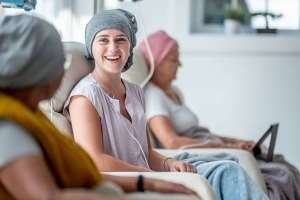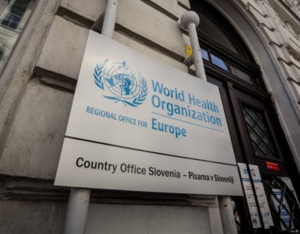Owner
Measles Outbreak Grows in North London Boroughs
Health officials have confirmed a further rise in measles infections in north London, with new cases reported in both Enfield and Haringey. Data published by the UK Health Security Agency (UKHSA) shows 16 additional cases were recorded in Enfield over the past week, while neighbouring Haringey saw 10 more.
The latest figures take London’s total to 88 measles cases since the start of the year. Most infections have been identified in children under the age of 10. Earlier this week, parents in affected areas were warned that pupils who are not fully vaccinated could be kept off school if they have been exposed to someone with the virus.
Vaccination rates in the capital remain well below the national average. Across England, measles vaccine coverage in 2024 to 2025 stood at 83.7%, but London’s rate was 69.6%. In Enfield, only 64.3% of children were vaccinated. A GP involved with the NHS London Vaccination Programme said online misinformation and a sense of complacency were both discouraging uptake, despite measles carrying the risk of serious complications.
Local authorities say they are stepping up efforts to contain the outbreak, including outreach in communities and places of worship. Haringey Council said it is working with the NHS, UKHSA and neighbouring councils to limit transmission and encourage residents to attend catch-up clinics. The rise comes as the government launches a broader push to improve vaccination rates, after the UK lost its measles elimination status following a sharp increase in cases in recent years.
Stanford Team Tests ‘One-Spray’ Shield Against Winter Bugs
US scientists say they have developed an experimental nasal spray that could offer broad protection against a wide range of respiratory illnesses – including coughs, colds, flu and even some bacterial lung infections. The early-stage work, led by Stanford University, has so far only been tested in animals, with human trials still needed.
Unlike traditional vaccines, which train the body to recognise one specific virus or bacterium, this approach works in a completely different way. Rather than targeting a single pathogen, the spray appears to keep key immune cells in the lungs on standby, ready to react quickly to whatever tries to enter.
In animal experiments, the researchers found the effect lasted for roughly three months. During that time, viruses were reduced by between 100 and 1,000 times in the lungs. The team also reported protection against two bacterial species, including Staphylococcus aureus and Acinetobacter baumannii. They even saw signs the immune response to house dust mite allergens was dampened, which could be relevant for allergic asthma.
Experts have described the findings as promising but warned there are major unknowns. It is unclear whether the same results will translate to people, how long any protection might last, and whether keeping the immune system “on alert” could trigger unwanted inflammation. The researchers believe the spray could complement existing vaccines, particularly during winter or the early stages of a new pandemic.
AI Health Warnings Raised
Relying on artificial intelligence chatbots for medical guidance could put patients at risk, according to new academic research. The study suggests that while such systems can generate convincing answers, they frequently deliver advice that is inaccurate, inconsistent or potentially unsafe when applied to real-life health concerns.
The investigation was carried out by experts from the Oxford Internet Institute and the University of Oxford’s Nuffield Department of Primary Care Health Sciences. Writing in the journal Nature Medicine, the researchers examined how people used large language model (LLM) tools when presented with a range of medical scenarios. Nearly 1,300 participants were asked to identify possible conditions and decide on an appropriate course of action. Some consulted AI chatbots, while others relied on more traditional routes, including speaking to a GP.
The findings revealed that chatbot responses often blended correct and incorrect information, leaving users unable to reliably tell the difference. Although these systems perform strongly in formal medical knowledge tests, the researchers warned that real-world use is far more complex. In particular, the tools sometimes failed to recognise when symptoms required urgent attention.
Dr Rebecca Payne, a GP and co-author of the study, said the technology was not yet capable of replacing a trained clinician. Lead author Andrew Bean added that human interaction remains a significant hurdle for advanced AI systems, and called for further work to ensure they are safe and genuinely helpful in healthcare settings.
UK Issues Cape Verde Travel Warning
The UK Health Security Agency (UKHSA) has urged holidaymakers to take extra care when travelling to Cape Verde after a rise in gastrointestinal infections linked to visits to the islands. The alert comes ahead of the February half-term, when more Britons are expected to head to the popular winter sun destination.
Since 1 October, UKHSA has recorded 118 cases of shigella and 43 cases of salmonella associated with travel to the West African archipelago. While most people recover within a week, four British nationals have died in the months after becoming unwell following trips to Cape Verde. Shigella and salmonella can cause diarrhoea, fever and stomach cramps, with higher risks for young children, older people, pregnant women and those with weakened immune systems.
Both infections are spread through contact with contaminated faeces, either directly or via food, water or surfaces. UKHSA advises travellers to eat freshly cooked food served hot, drink bottled or boiled water, avoid ice, use safe water when brushing teeth, peel fruit themselves and steer clear of salads washed in uncertain water. Officials also stressed the importance of regular handwashing.
Most shigella cases involved visitors to Santa Maria on Sal and Boa Vista. Cape Verde’s government said there is no declared outbreak and no formal notification from the UK. Experts noted buffet catering can increase transmission. Tui is facing legal claims from families of six Britons who died after visiting since January 2023, and says it is investigating.
Government Sets Out Drive to Boost Cancer Survival Rates in England
The government has unveiled a long-term cancer plan for England aimed at ensuring 75% of patients live for at least five years after diagnosis by 2035. Ministers say the strategy, which focuses on faster diagnosis and treatment, could deliver the strongest improvement in cancer outcomes seen this century. Current figures show five-year survival stands at around 60%, trailing behind several comparable countries.
Central to the plan is a commitment to meet the NHS target for starting treatment within 62 days of referral by 2029, a standard not achieved for more than a decade. The strategy also promises millions more tests and scans, expanded use of robotic surgery, and greater access to specialist centres for rare and complex cancers. Genetic testing will be widened so more patients can receive targeted therapies.
Early diagnosis is described as critical, with efforts to improve screening and identify cancers at earlier stages. Measures include lowering thresholds for bowel cancer checks and expanding targeted lung cancer screening for people with a history of smoking. Every patient would also be offered personalised support plans and a named care lead to help coordinate care beyond treatment.
While the proposals have been broadly welcomed, experts have warned that staffing shortages could undermine progress. Professional bodies point to significant gaps in radiology and oncology roles, arguing that sustained investment in the specialist workforce is essential. Cancer charities say the ambition is encouraging but stress that prevention, workforce capacity and regional inequalities must be tackled to deliver lasting change.
Government Plans 10,000 New Foster Placements Amid Carer Shortage
The government has announced plans to create 10,000 additional foster care placements in England by relaxing fostering rules and reducing bureaucracy. Ministers say the changes are needed to address a critical shortage of foster carers, which has led to more vulnerable children being placed in residential children’s homes rather than family settings.
Under the proposals, it will become easier for people who work full time to foster, and outdated eligibility criteria used by some councils will be reviewed. Clearer guidance is also expected to encourage people from a wider range of backgrounds, including those from ethnic minority communities, to come forward. An additional £88m has been pledged to support reforms to the fostering system.
Official figures show the number of foster carers in England fell by 12% between 2021 and March 2025, with 1,140 fewer foster placements available over the past year alone. During the same period, the number of children placed in residential care rose by 9%. Spending on children’s homes has almost doubled in five years, reaching £3.1bn in 2023–24, according to the National Audit Office.
Children and families minister Josh MacAlister said reversing the decline in foster placements was an “urgent priority”. Although around 150,000 people expressed interest in fostering last year, just over 7,000 were approved. The government believes modernising the system could significantly increase capacity before the end of the current parliament.
Children Face Lengthy Delays for NHS Community Care
Large numbers of children in England are waiting more than a year for NHS community health support, including speech and language therapy, hearing services and disability care, new analysis shows. Of the roughly 300,000 young people currently on waiting lists, around one in four have been waiting longer than 12 months, prompting warnings from clinicians that the delays are seriously damaging children’s development.
Doctors and NHS leaders say access to community services has deteriorated sharply in recent years. Since early 2023, the number of children waiting over a year has increased six-fold to more than 77,000. Long waits of this length are rare for adults, highlighting a growing gap in how services are accessed. Professionals argue that early intervention is vital for children and that delays can have lifelong consequences.
One parent, London-based Tiya Currie, described feeling “lost and overwhelmed” as she struggled to secure help for her son’s speech difficulties. After two years without NHS support, her family spent thousands of pounds on private assessments and therapy, which led to a diagnosis of developmental language disorder. While treatment has helped, she believes many families are left behind because they cannot afford to pay.
The government says the situation is unacceptable and has promised improvements through its 10-year NHS plan. Ministers say increased funding, more staff and a new target to see community patients within 18 weeks should improve access. However, health leaders warn that without urgent investment, children will continue to miss crucial opportunities for timely care.
US Cuts Ties With World Health Organization
The United States has formally ended its membership of the World Health Organization, removing one of the UN agency’s largest sources of funding. The decision follows an executive order signed by President Donald Trump a year ago, in which he accused the WHO of favouring China during the Covid-19 crisis and failing to carry out meaningful reform.
Washington said the move was driven by what it described as poor handling of the pandemic, excessive political influence within the organisation and resistance to change. All US government funding has now been stopped, staff have been withdrawn from WHO offices worldwide, and cooperation across hundreds of programmes has been halted. The US has also refused to pay outstanding membership fees, estimated at around $260m.
The WHO strongly disputes the accusations. Director general Dr Tedros Adhanom Ghebreyesus said the withdrawal harms both the US and global public health, highlighting the organisation’s work on polio eradication, HIV and Aids treatment, maternal health and tobacco control. He also pointed to the recently agreed international pandemic treaty, designed to improve preparedness and fair access to vaccines, which the US declined to join.
US officials say future health cooperation will take place through bilateral agreements, NGOs and faith-based groups, although details remain unclear. Public health experts warn the move could weaken global disease surveillance and preparedness. The issue will be discussed at the WHO’s executive board meeting in early February.
New NHS Training Drive to Identify Eating Disorders Earlier
NHS England is rolling out new training for teachers, school nurses and GPs to help them recognise the early warning signs of eating disorders in children and young people. The move aims to ensure concerns are picked up sooner, reducing the risk of young people struggling without support and improving access to specialist care.
The initiative follows a sharp rise in demand for services, with the number of under-18s receiving treatment increasing by almost 40% since before the pandemic. Alongside the training programme, updated national guidance has been published which moves away from relying on body mass index (BMI) alone when deciding whether treatment is needed. Clinicians are instead encouraged to take a broader view, considering behavioural changes, physical health and family worries.
Online learning resources, developed with support from the charity Beat and the Royal College of Psychiatrists, will help professionals working in education and primary care understand how to spot symptoms and refer children for NHS support. Every area of England now has access to a specialist eating disorder service for young people, with most patients beginning treatment within weeks of referral as a result of expanded community-based care.
Health leaders say earlier intervention can prevent conditions such as anorexia, bulimia and binge eating disorder from becoming more severe. Beat and the Royal College of Psychiatrists have welcomed the changes, calling for rapid implementation, sufficient staffing and sustained funding. They say the guidance offers a clear framework to improve consistency, tackle inequalities and ensure families receive the right help at the right time.
A&E Delays Leave Thousands Waiting Hours for Care
Around one in every ten patients attending large accident and emergency departments in England last year spent more than 12 hours waiting for treatment or a hospital bed, according to new analysis. In 2025, about 1.75 million people experienced these lengthy delays, showing only a small improvement compared with the previous year.
Nursing leaders have warned that prolonged waits are fuelling the continued use of “corridor care”, where patients are treated in unsuitable spaces such as hallways or side rooms. The Royal College of Nursing has shared accounts from staff describing conditions they say are unsafe and degrading, with some nurses reporting deep distress at being unable to provide dignified care.
Health Secretary Wes Streeting said the situation was unacceptable and acknowledged that hospitals were failing to meet expected standards. While he said some areas, including ambulance response times and elective waiting lists, are beginning to improve, he admitted corridor care remains widespread. He has pledged to end the practice before the next general election and plans to publish more detailed data on its use.
Hospital pressures have been particularly visible this winter, with several trusts declaring critical incidents. Patients have been left waiting overnight for beds, especially older people requiring urgent care. Although the overall waiting list for planned treatments has fallen to its lowest level in nearly two years, doctors warn overcrowded hospitals continue to place patients at risk. Clinicians and campaigners say meaningful reform is urgently needed to prevent long waits from becoming an accepted part of emergency care.
















